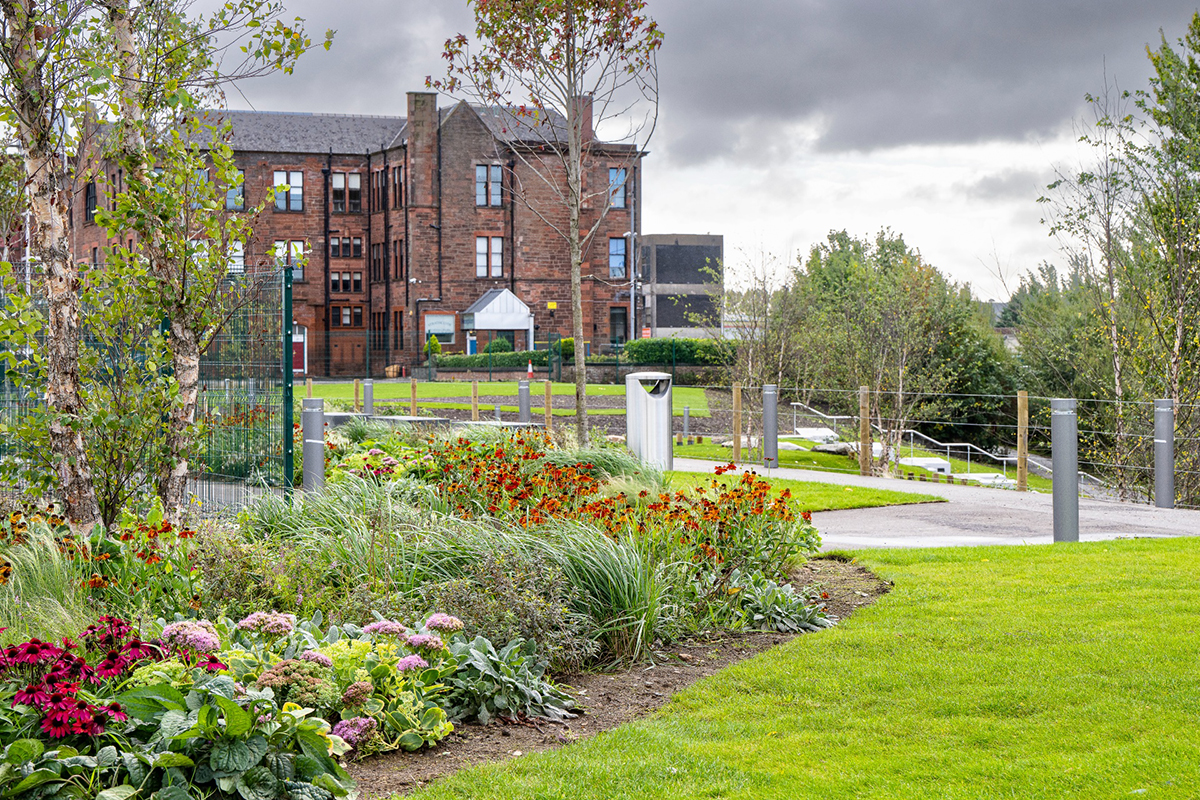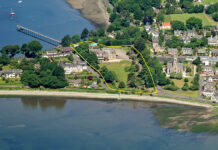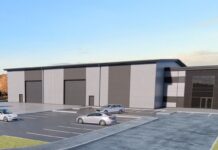
By Ian Manson, chief executive of Clyde Gateway
FOR Clyde Gateway, Scotland’s most ambitious regeneration project, there has been an increased focus on creating new green spaces. Aside from the many environmental reasons brought into focus throughout COP26 in Glasgow, our investment in new parks is due to the plethora of benefits they provide to both families and businesses.
Residents in the east end of the city benefit from having a place to relax and spend time together outdoors, while businesses can benefit from the increased foot traffic and customer spending that green spaces can provide.
We are proud of our ongoing investments and Clyde Gateway takes an integrated approach to infrastructure, carbon management and our journey to net zero. I believe that Blue-Green Infrastructure, infrastructure integrated with nature and designed to provide natural features in urban landscapes, can address environmental challenges such as climate change, biodiversity loss, and water management.
One of our key projects is our Community Energy Project in Dalmarnock. This collaborative partnership with Scottish Water Horizons has been developed to promote a community-based district heating network, which supplies low cost heat to central Dalmarnock, linked to the existing adjacent Dalmarnock Waste Water Treatment Works. This initiative providing energy to businesses and homes is what really sets our regeneration area apart.
I am also extremely proud to be Scotland’s first Green Regeneration Innovation District and this new sustainable district heating network places Clyde Gateway as one of Scotland’s leading energy efficiency and sustainability sites, benefiting hundreds of homes and businesses. This incredible 3 km-long underground project is just as important to the ongoing regeneration of Glasgow’s east end as any of the transformative above ground projects that have taken place over the past decade.
In addition, the Cuningar Loop Woodland Park is a 15-hectare greenspace, managed by Forestry and Land Scotland, is a fine example of how we are building on the fantastic biodiversity in the Clyde Gateway. This riverside location includes an orientation point with local maps highlighting zones for birds, bats, butterflies, a tree planting meadow and wildflower planting areas to encourage butterfly basking. It is incredible that more than 900,000 people have already visited the park since it opened in 2016.
We have also recently completed a new £3m Riverside Park in Dalmarnock, which will be officially opened next week by Tom Arthur MSP, the minister for public finance, planning and community wealth. The park was created by transforming a previously vacant and inaccessible site into a dynamic new green space which can be used by walkers and cyclists. We were delighted to receive £750,000 for the project from the Scottish Government through its Vacant and Derelict Land Investment Programme, and £98,000 via NatureScot’s Nature Restoration Fund.
Active travel, of which these new parks will contribute to, is one of our main attributes in attracting people to live and work in Glasgow’s East End. If we get this right with careful planning in our communities, we can reduce car use and encourage more people to make journeys by walking, cycling or public transport.
The benefits of our investments are already numerous. For families, green spaces provide a place to relax and spend time together outdoors. They also give children a place to play and explore. Businesses also benefit from the creation of new green spaces. Green spaces increase foot traffic, customer spending and also attract new businesses and employees to our area.
On our journey towards net zero, we are determined to take with us the people living within our communities, and the businesses who have set up or relocated here, for a greener, cleaner and brighter future.








